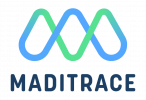Project Family
The TwinVECTOR Project Family is a clustering activity designed to enhance the family projects’ visibility and impact by sharing the objectives, activities, and results. We aim to engage a broader audience and foster greater public awareness. Our initiatives include promoting open webinars and workshops, organizing joint events, and presenting our projects through social media profiles.
Such cooperation can range from networking and joint workshops to exchanging knowledge and best practices. By leveraging these opportunities, we maximize the impact of our projects and contribute to the broader goals of Horizon Europe programme.

APPROACH is a multi-stakeholder project, aiming at democratizing the opportunity for post-academic training and professional development of young researchers and innovators. APPROACH is a partnership that will enable the enhancement of talents’ inventive thinking and creative knowledge in the development of nanofabricated materials and methods for solar energy harvesting applications. It will contribute to the growth of diversity of backgrounds, talents and motives of job expectations while will allow scientific knowledge advances through interaction and exchange of views. The project is led by Foundation for Research and Technology – Hellas (FORTH), Greece. The APPROACH consortium consist of 9 partners of 6 countries.

The EPIBOOST project, funded under the HE programme, is a Twinning Action that unites UAveiro (PT) with UGent (BE) and CSIC (SP) to enhance research excellence in environmental epigenetics. This emerging field focuses on how gene expression and organism responses are regulated by epigenetic modifications, which is crucial for Ecological Risk Assessment (ERA). While UAveiro excels in ERA, it seeks to bolster its expertise in epigenomics with support from CSIC and UGent. These partners will also aid in upgrading Uveiro’s facilities for next-generation sequencing and animal experimentation, as well as improving science management practices to meet HE funding requirements.

The project aims at increasing the research and academic prospects of Slovak University of Technology in Bratislava, Slovakia (STUBA) and at initiating the evolution of STUBA into a modern, reputed excellent institution that performs high-quality research in advanced automatic control, educates top-quality scholars and industrial practitioners, and is successful in active dissemination and exploitation of its research and innovation efforts. For this purpose, STUBA teams up with two renowned research groups in automatic control from RU Bochum, Germany (RUB, https://lrs.ruhr-uni-bochum.de/en/) and Pisa University, Italy (UNIPI, https://www.unipi.it/index.php/english). The specific goals of the action are to reinforce the collaboration with the two research groups from Western Europe, to intensify research in advanced automatic control, to open up new collaboration channels through academic and industrial networking, to train excellent young/senior researchers and project managers, and to effectively disseminate and exploit the research results of STUBA.
Web LinkedIn Facebook Zenodo
GREENLand (https://project-greenland.com/) is an innovative strategy for transforming to a digital Cloud-Based System with the education of staff for research of microplastics in soil, water, and microorganisms, as well as networking with the excellent institutions and stakeholders who are interested in the results of scientific research. The Project is led by EDUCONS University (https://educons.edu.rs/) from Serbia and 2 more partners – University of Galway (https://www.universityofgalway.ie/) from Ireland and Alfred Wegener Institute (https://www.awi.de/en/) from Germany. GREENLand project will last 36 months.

Launched in January 2023, MaDiTraCe is a 36-month European project coordinated by BRGM (French Geological Survey) that aims to reinforce the transparency, traceability, and sustainability of complex supply chains of critical raw materials including cobalt, lithium, natural graphite and rare earth elements. Bringing together 14 partners from 7 countries, the project will develop and integrate technological solutions for traceability and certification into a Digital Product Passport. These solutions will enable key industry players to prove the reliability of their sustainability claims, comply with current regulation and anticipate future policies.

The SAN4Fuel project aims to develop innovative single-atom photocatalysts using abundant metals for green hydrogen and hydrocarbon production through water splitting and CO2 reduction, leveraging VSB-TUO’s supercomputing capabilities. By fostering collaboration among UPOL and its partners, it enhances research capacity, strengthens UPOL’s R&D management, and provides valuable training for early-stage researchers. The project contributes to advancing clean energy technologies, reducing carbon emissions, and positioning Europe as a leader in sustainable energy innovation.

The SOLiD project aims to create a sustainable and cost-efficient pilot scale manufacturing process for a high energy density, safe and easily recyclable solidstate Li-metal battery. The project will develop a scalable process for each of the cell layers and interlayers and demonstrate the cell manufacturing and assembly in pilot and industrial scale. The SOLiD project aims at creating sustainable production for solid-state electric vehicles batteries, contributing directly to the environmental objective of climate change mitigation. In addition, the project supports the objective of transitioning to a circular economy by developing direct recycling routes for the studied batteries. The project is led by VTT Technical Research Centre of Finland. The SOLiD consortium consists of 14 partners from 9 different countries.